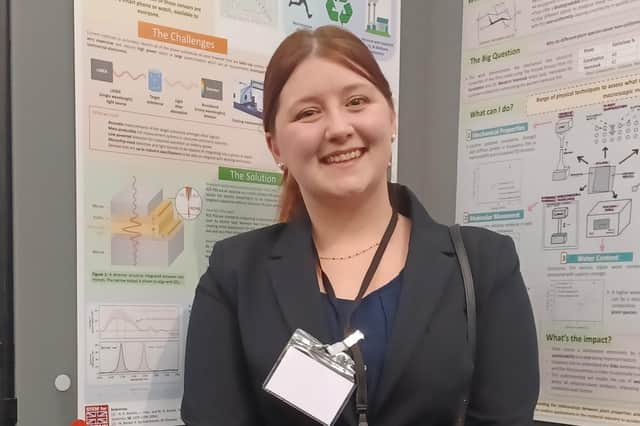Silver award for Lancaster University researcher at STEM for Britain contest


The event aims to raise the profile of the UK’s early-stage researchers at Westminster by engaging members of both Houses of Parliament with current science, engineering and mathematics research being undertaken in the UK, especially by the university in their local constituency.
Prizes are awarded for the posters presented in each discipline which best communicated high level science, engineering or mathematics to a lay audience.
Advertisement
Hide AdAdvertisement
Hide AdLaura’s poster was entitled “Sensing at Your Fingertips: A Path to Spectrally Selective Infrared Detectors for You and Your Environment”, which is the focus of her current research project.
Her work involves smart monitoring of various health metrics such as blood glucose, which could enable people to monitor their own health at home.
Her research project is funded by the Engineering and Physical Sciences Research Council Impact Acceleration Account, which supports Lancaster University researchers to translate their work into broader societal and economic benefits.
Laura presented her poster before an audience including Lancaster MP Cat Smith, and other members of the House of Commons and the House of Lords, as well as policy-makers and members of Learned and Professional Societies.
Advertisement
Hide AdAdvertisement
Hide AdLaura said: “It was a fantastic opportunity to step out of what is usually a very focused social bubble of people who know exactly what you do and discuss your research in a much broader context. It was a very unique experience.”
The event gives researchers a broad audience with whom to discuss their research, as well as enabling them to understand how science, technology, engineering and maths are discussed and dealt with in Parliament.
“To truly have impact you need to make sure the wider world both know about your work and most importantly how your work impacts them personally and infrared detectors have a lot to offer in that respect, it’s important that people know what is possible.
"The more interest a research project gets the more chance it has to actually make an impact. It is also great for people to get an insight into the impactful work that goes on at Lancaster University.”